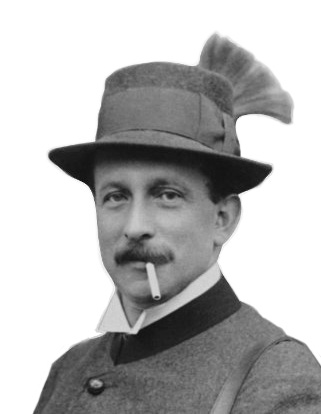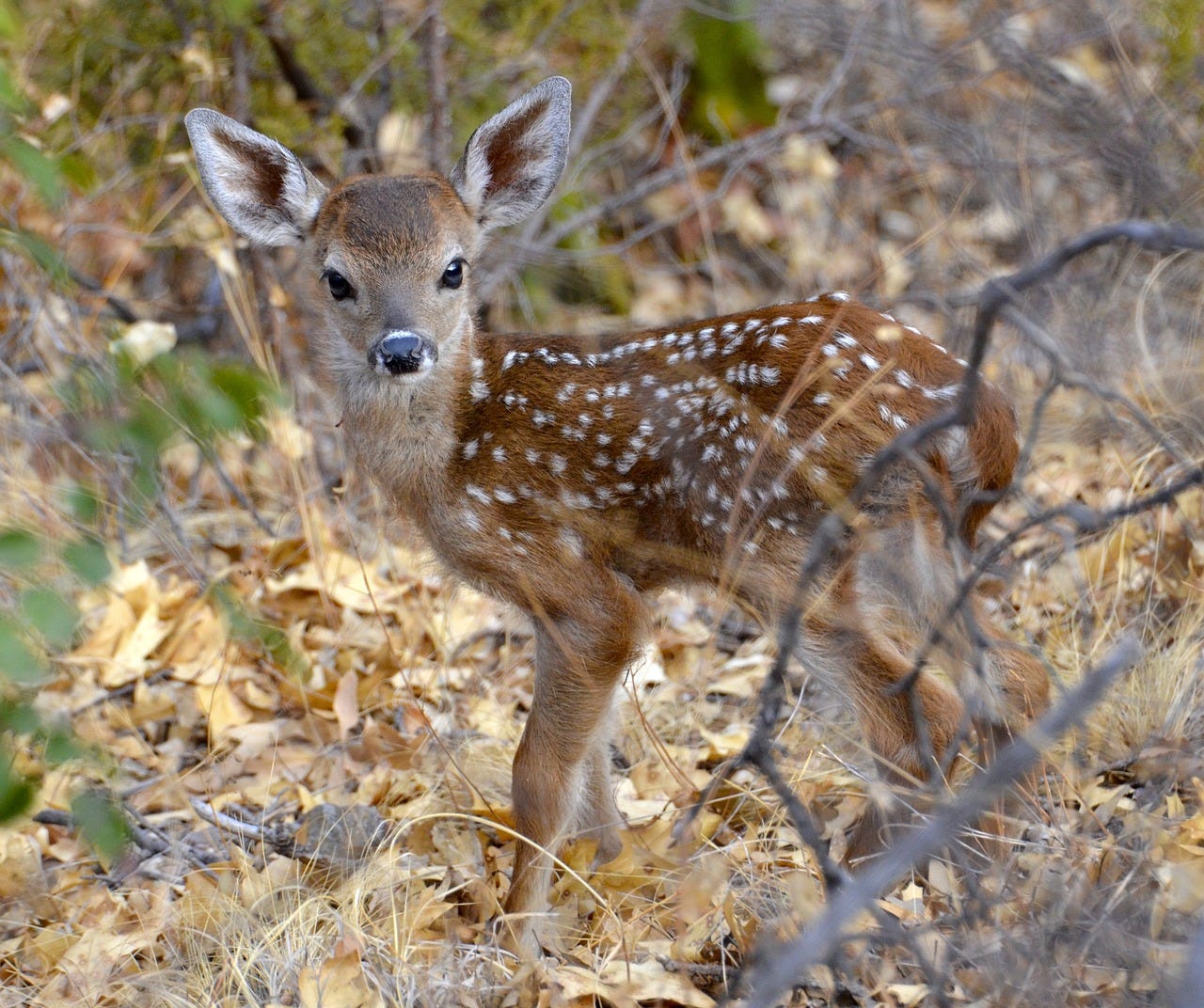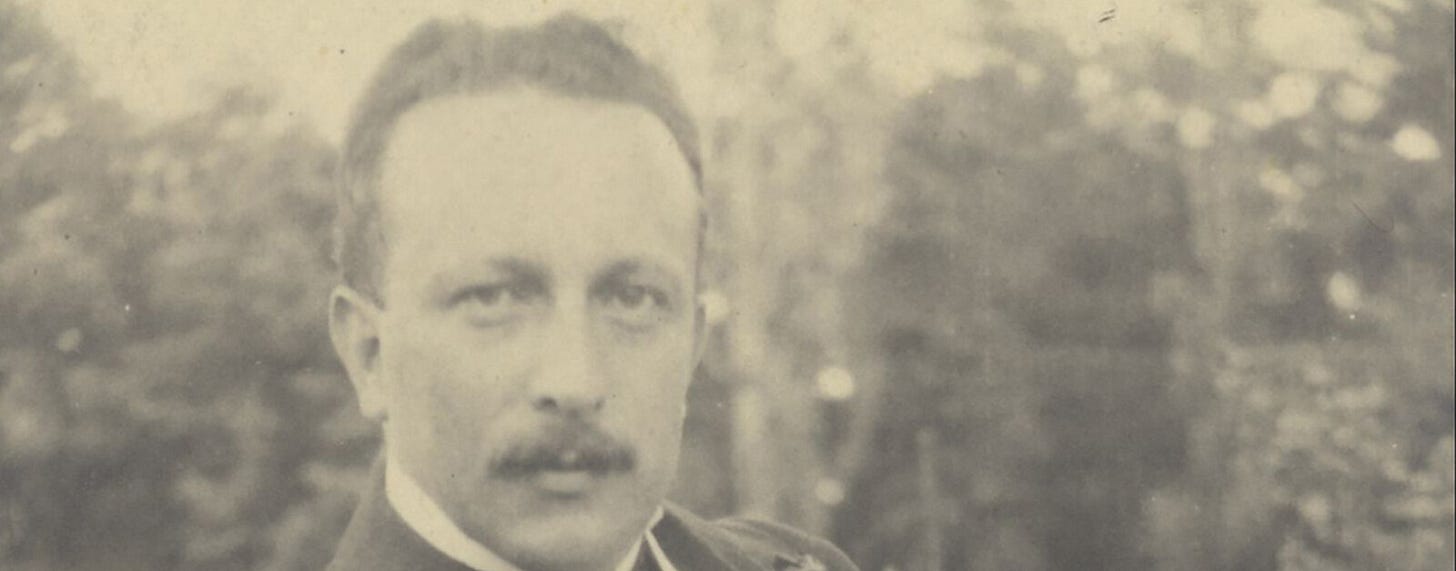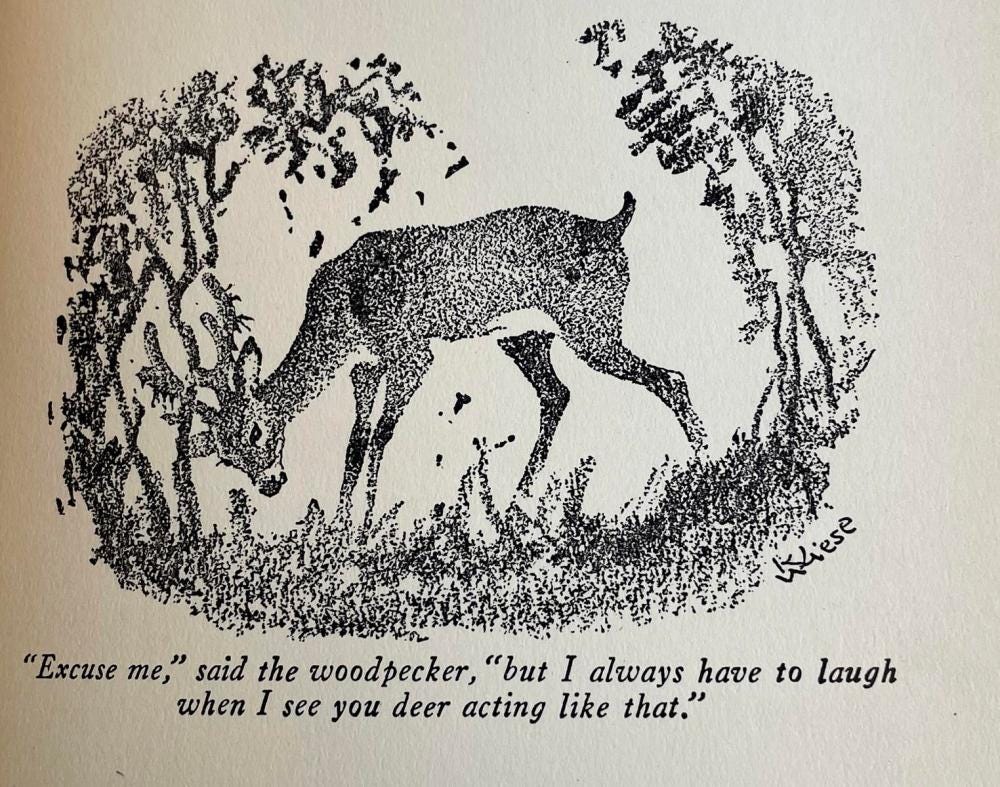About Bambi - not the Disney movie, but the Hitler-banned original novel
I'm an eclectic reader - rather than stick to preferred authors and genres, I go with recommendations and random notions and thus get to discover new world all the time. And Bambi? Oh, my!
First off, I had no idea that before Disney’s Bambi, there was a novel - penned by Austro-Hungarian Felix Salten way back when in 1923. With one of my random notions, I decided to discover some of the writers of the “Wiener Moderne” - essentially the writers of the Viennese cultural avant-garde at the start of the 20th century. I discovered several curios, and some real gems (such as Alfred Kubin’s ‘The Other Side’ - what a fever dream of a tale!)
Feel like reading Salten’s Bambi right now? Here it is in full on Gutenberg
Salten, who’s family had moved to Vienna when Jews were given full citizenship rights in 1867, was not only a novelist and essayist, he also wrote plays and poems and, oh yeah, he was a passionate hunter. I found it curious - and oddly hopeful, perhaps - that this hunter should write what was in later years called one of the first ‘environmental novels’. In ‘Bambi, a Life in the Woods’ (Bambi: Eine Lebensgeschichte im Walde), his love for nature and keen observation are on full display.


Personally, I have zero regard for anyone who hunts for the joy of hunting, of stalking and killing for the kick of it. And I think there’s a great deal to the notion that you can tell a lot about a person by the way they treat animals … and so yes, curious. That passionate hunter who killed countless creatures living in the forest, just minding their own business, that hunter who joined hunting parties that are so brutally and violently and shockingly depicted in the novel, wrote about the animals’ experiences with considerable compassion, entirely from their point of view. Well, I guess it isn’t that curious, really, human beings are incredibly adept at compartmentalizing just about everything.
Now about the novel - this is a novel for grown-ups. This is not Bambi - in fact, when Disney bought the rights, they instantly saw that it would require massive Disney-fication. And they did, and the rest is movie history. The novel, however, while containing the deep love between Bambi and his mother, is far more realistic than most of the Disney film.
The novel is about nature and - even when there are no hunters around - nature comes with everything that is natural - and that often is simply about the seasons and cycle, about life and death. For us it may occasionally look pretty - but for animals it is life, always on edge, always just a step away from falling prey to any of the many dangers. To give you an idea, in one chapter Salten writes about the hardships of winter:
It was silent in the woods, but something horrible happened every day. Once the crows fell upon Friend Hare’s small son who was lying sick, and killed him in a cruel way. He could be heard moaning pitifully for a long while. Friend Hare was not at home, and when he heard the sad news he was beside himself with grief.
Another time the squirrel raced about with a great wound in his neck where the ferret had caught him. By a miracle the squirrel had escaped. He could not talk because of the pain, but he ran up and down the branches. Everyone could see him. He ran like mad. From time to time he stopped, sat down, raised his forepaws desperately and clutched his head in terror and agony while the red blood oozed on his white chest. He ran about for an hour, then suddenly crumpled up, fell across a branch, and dropped dead in the snow. A couple of magpies flew down at once to begin their meal.
Another day a fox tore to pieces the strong and handsome pheasant who had enjoyed such general respect and popularity. His death aroused the sympathies of a wide circle who tried to comfort his disconsolate widow.
The fox had dragged the pheasant out of the snow, where he was buried, thinking himself well hidden. No one could have felt safer than the pheasant for it all happened in broad daylight. The terrible hardship that seemed to have no end spread bitterness and brutality. It destroyed all their memories of the past, their faith in each other, and ruined every good custom they had. There was no longer either peace or mercy in the forest.
Another chapter - hard to stomach - is about a hunting party ‘twenty or thirty strong’, beaters hitting trees and bushes, the animals surrounded, rifle shots, hunter’s rallying cries, panic among the creatures of the forest. Pheasants try not to panic and yet soon fly - and are shot one after another. Friend Hare struck in flight, dead … and then there’s Friend Hare’s wife:
A tangle of bushes he blundered into forced him to slacken his pace and look for a path. He pawed the ground impatiently with his hoofs. “This way!” called someone with a gasping voice. Bambi obeyed involuntarily and found an opening at once. Someone moved feebly in front of him. It was Friend Hare’s wife who had called.
“Can you help me a little?” she said. Bambi looked at her and shuddered. Her hind leg dangled lifelessly in the snow, dyeing it red and melting it with warm, oozing blood. “Can you help me a little?” she repeated. She spoke as if she were well and whole, almost as if she were happy. “I don’t know what can have happened to me,” she went on. “There’s really no sense to it, but I just can’t seem to walk....”
In the middle of her words she rolled over on her side and died. Bambi was seized with horror again and ran.
… See what I mean? Not exactly the Bambi story you remember watching as a kid, right? But again, it is more real, more the story of actual life in the woods - it is quite a good read, I can assure you - also and maybe because it doesn’t gloss over the realities, but depicts the harrowing elements as well.
Just about every element in Bambi is for an adult readership, really. There is also, a very thoughtful passage about death and appreciating the now and what might come after death - it’s beautifully told, from the point of view of two leaves, the last leaves on the tree before winter:
The leaves were falling from the great oak at the meadow’s edge. They were falling from all the trees. One branch of the oak reached high above the others and stretched far out over the meadow. Two leaves clung to its very tip.
“It isn’t the way it used to be,” said one leaf to the other.
“No,” the other leaf answered. “So many of us have fallen off tonight we’re almost the only ones left on our branch.”
“You never know who’s going to go next,” said the first leaf. “Even when it was warm and the sun shone, a storm or a cloudburst would come sometimes, and many leaves were torn off, though they were still young. You never know who’s going to go next.”
“The sun seldom shines now,” sighed the second leaf, “and when it does it gives no warmth. We must have warmth again.”
“Can it be true,” said the first leaf, “can it really be true, that others come to take our places when we’re gone and after them still others, and more and more?”
“It is really true,” whispered the second leaf. “We can’t even begin to imagine it, it’s beyond our powers.”
“It makes me very sad,” added the first leaf.
They were silent a while. Then the first leaf said quietly to herself, “Why must we fall?...”
The second leaf asked, “What happens to us when we have fallen?”
“We sink down....”
“What is under us?”
The first leaf answered, “I don’t know, some say one thing, some another, but nobody knows.”
The second leaf asked, “Do we feel anything, do we know anything about ourselves when we’re down there?”
The first leaf answered, “Who knows? Not one of all those down there has ever come back to tell us about it.”
They were silent again. Then the first leaf said tenderly to the other, “Don’t worry so much about it, you’re trembling.”
“That’s nothing,” the second leaf answered, “I tremble at the least thing now. I don’t feel so sure of my hold as I used to.”
“Let’s not talk any more about such things,” said the first leaf.
The other replied, “No, we’ll let be. But—what else shall we talk about?” She was silent, but went on after a little while, “Which of us will go first?”
“There’s still plenty of time to worry about that,” the other leaf assured her. “Let’s remember how beautiful it was, how wonderful, when the sun came out and shone so warmly that we thought we’d burst with life. Do you remember? And the morning dew, and the mild and splendid nights....”
“Now the nights are dreadful,” the second leaf complained, “and there is no end to them.”
“We shouldn’t complain,” said the first leaf gently. “We’ve outlived many, many others.”
“Have I changed much?” asked the second leaf shyly but determinedly.
“Not in the least,” the first leaf assured her. “You only think so because I’ve got to be so yellow and ugly. But it’s different in your case.”
“You’re fooling me,” the second leaf said.
“No, really,” the first leaf exclaimed eagerly, “believe me, you’re as lovely as the day you were born. Here and there may be a little yellow spot but it’s hardly noticeable and only makes you handsomer, believe me.”
“Thanks,” whispered the second leaf, quite touched. “I don’t believe you, not altogether, but I thank you because you’re so kind, you’ve always been so kind to me. I’m just beginning to understand how kind you are.”
“Hush,” said the other leaf, and kept silent herself for she was too troubled to talk any more.
Then they were both silent. Hours passed.
A moist wind blew, cold and hostile, through the tree-tops.
“Ah, now,” said the second leaf, “I ...” Then her voice broke off. She was torn from her place and spun down.
Winter had come.
Anyways - there you have it - I thought it worth sharing as Salten’s novel was, for me, quite a surprise that completely changed ‘Bambi’ for me. Salten was prolific, by the way - and seems to have enjoyed life in early 20th century Vienna. But when Hitler stepped onto the scene, life in Vienna became dangerous for Jews. Salten’s books were banned by 1936 (apparently Bambi was seen as a ‘political allegory on the treatment of Jews in Europe’) and so Salten, in 1938, moved to Switzerland.
He passed away in 1945, one month after the end of WWII and, while his name is forgotten by most, his creation has brought joy to billions. Here’s to Bambi, the novel - because if you read it (instead of watching the film), you can’t help but be more respectful, maybe even filled with wonder, next time you talk a forest walk.
Oh and finally - Salten wrote a sequel named “Bambi’s Children’ and, for once, Hollywood didn’t immediately try to build on the original’s success. Well, I haven’t yet read it - have you? Will surely take the time eventually - based on the first one, one may be intrigued!









Amazing! I had no idea. Adding it to my reading list. Thank you.